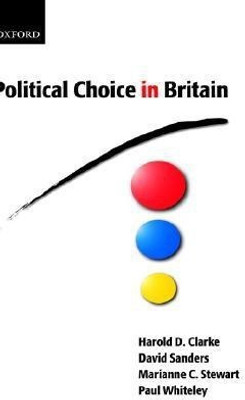Political Choice in Britain(English, Hardcover, Clarke Harold D.)
Quick Overview
Product Price Comparison
Why do people vote as they do? Indeed, why do they vote at all? What do they think about elections, political parties, and democracy? This important book by four leading scholars addresses these questions. Using a wealth of data from the 1964-2001 British election studies, monthly Gallup polls, and numerous other national surveys conducted over the past four decades, the authors test the explanatory power of rival sociological and individual rationality models of turnout and party choice. Analyses of party choice endorse a valence politics model that challenges the long-dominant social class model. British voters make their political choices by evaluating the performance of parties and party leaders in economic and other important policy areas. Although these evaluations may be products of events and conditions that occur long before an election campaign officially begins, parties' national and local campaign activities are also influential. Consistent with the valence politics model, partisan attachments display individual- and aggregate-level dynamics that reflect ongoing judgements about the managerial abilities of parties and their leaders. A general incentives model provides the best explanation of turnout. Calculations of the costs and influence-discounted benefits of voting and sense of civic duty are key variables in this model. Significantly, the decline in turnout in recent elections does not reflect more general negative trends in public attitudes about the political system. Voters judge the performance of British democracy in much the same way as they evaluate its parties and politicians. Support at all levels of the system is a renewable resource, but one that must be renewed. A command of theory, data, models, and method ensure that Political Choice in Britain will be a major resource for all those interested in elections, voting, and democracy.


